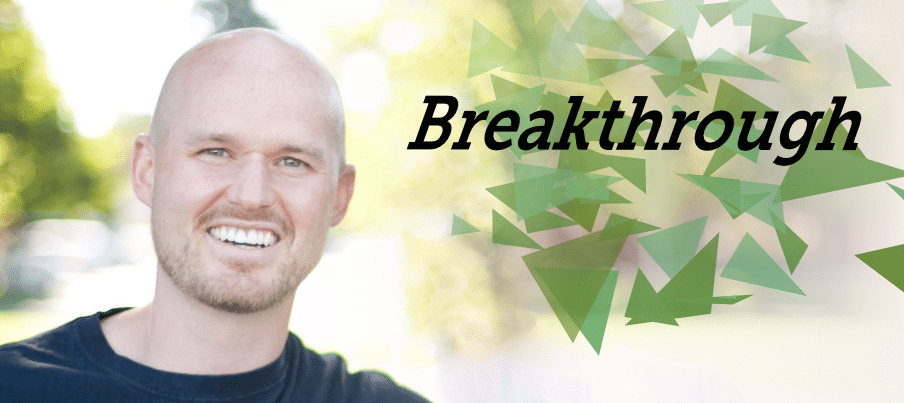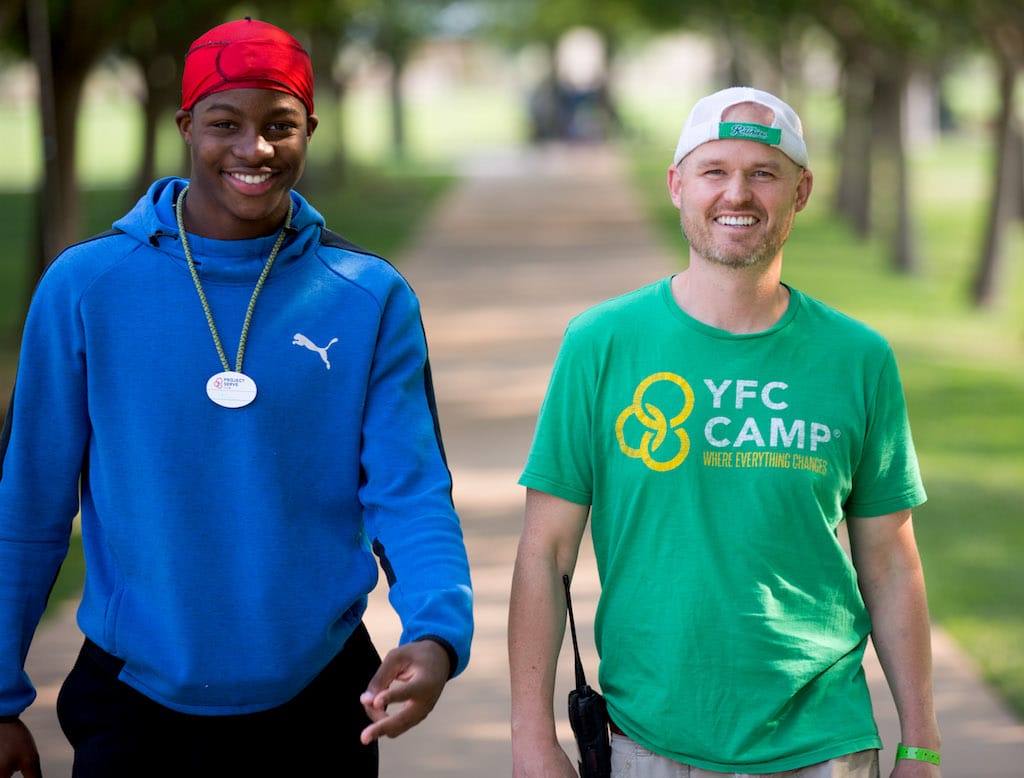Breakthrough: Doug Jonson
Posted by: Doug Jonson (Seattle-Tacoma 2011) | February 27, 2020

In 2011, when I started going through the DeVos Urban Leadership Initiative in Tacoma, I was working two jobs that required leading two ministry partnerships. Both positions meant being responsible for leading a late-night kids’ ministry, as well as an evangelistic ministry for neighborhood teens called Sozo. On top of that, I was overseeing late-night programs at four different schools. I believed that every opportunity was an open door from God, and it was an act of unbelief (the opposite of faith) and disobedience to not walk through an open door. This resulted in burnout and doing ministry in an unsustainable way.
My DVULI experience led to two main turning points in my life. The first turning point was through a relationship with my DVULI mentor, who was laser focused and strategic. He didn’t become distracted by “opportunities” that weren’t in alignment with his organization’s mission and vision. I asked him to be my mentor because I witnessed firsthand how much impact his team was having on the youth in our community. I was impressed by the way they had grown slowly but consistently over 16 years. This reinforced the DVULI principle of capacity. In our organization, we never questioned whether we had the capacity to do our ministries well and sustainably.
The second turning point for me was during our week in Holland, Michigan, at the Systems Thinking Conference. A diagram was presented that illustrated healthy growth: doing the right thing well for a length of time before expanding a little. It was simple, and it resonated with me. I had a revelation that I was involved in too many ministries. The ministries started quickly, and we couldn’t do them well. At this conference, we took a bus trip to a Lake Michigan campground. I asked Coach Phil Abeyta if I could talk with him on the bus ride. We hadn’t even sat down before I started sobbing. I showed him a diagram of the ministries that I was involved in, and it was a complete mess—it looked more like a Pictionary drawing of a hurricane than a functional ministry plan. I felt out of control and utterly stuck!
The DVULI experience was a defining time for me. I realized that I had found identity in being busy. I believed the deception that “busy” equaled “important.” I was addicted to being busy because it made me feel needed and valued. Ultimately, my value and identity were not rooted in Jesus Christ but in what I did and in what people thought of me. This personal revelation was needed but difficult and painful to acknowledge. It left me with a mess to deal with when I returned home. There would be financial ramifications as well. But, if I faced the truth, my life would change for the better and lead to a healthier ministry, family, and marriage.
 Over the next year, I had difficult decisions to make in order to implement my breakthrough plan and live a healthier (but more fruitful) life. Those changes included resigning from my second job where I oversaw four late-night programs. Additionally, I made the difficult decision to close two of the programs at local schools. Although this felt like failure and upset some people at those schools, it was the only way that any of our ministries could continue and be fruitful. After these changes, God still provided for all our needs, including our financial needs; however, these provisions came after obeying Him and taking the action steps He was asking me to take.
Over the next year, I had difficult decisions to make in order to implement my breakthrough plan and live a healthier (but more fruitful) life. Those changes included resigning from my second job where I oversaw four late-night programs. Additionally, I made the difficult decision to close two of the programs at local schools. Although this felt like failure and upset some people at those schools, it was the only way that any of our ministries could continue and be fruitful. After these changes, God still provided for all our needs, including our financial needs; however, these provisions came after obeying Him and taking the action steps He was asking me to take.
I have been with the same organization, Tacoma Area Youth for Christ, for 13 years now. There is no question in my mind that I would have quit and possibly left ministry altogether if I had not slowed down and scaled back to become healthier and more effective. Two years ago, we had finally reached a point as an organization where we could expand our ministry. We were able to restart some of the ministries that we had closed seven years ago. We also combined our resources with Tacoma Rescue Mission, the largest homeless shelter in Tacoma. In my DVULI cohort, I befriended Duke Paulson, who serves as Executive Director of Tacoma Rescue Mission. Because of this connection, we now have a full-time Youth for Christ employee stationed at the Mission where we serve youth who are transitionally homeless through holistic programs. These programs include tutoring, college readiness, life coaching, art therapy, money management, sports, and recreation. We recently started a weekly club where teens learn about the love of Jesus Christ and engage with leaders in authentic, Christ-centered relationships.
In addition, we pursued a follow-up grant from the DeVos Initiative to host monthly learning communities and quarterly youth worker luncheons for our volunteers and partners in the county. The goal of the learning communities is to equip youth workers with training in areas that are relevant to their ministry. Each month, we invite experts from the community to teach a topic such as culture of poverty, trauma-informed care, mental health, LGBTQ issues, or a kingdom perspective on diversity. The youth worker luncheons provide youth leaders space for fellowship with the goal of increased collaboration for the kingdom. Through these events, we seek to empower leaders and youth in healthier ways.
While I had to make some tough decisions, I feel confident that the ministries are better because of those decisions. I don’t believe anyone can achieve personal or ministry breakthrough any other way.

